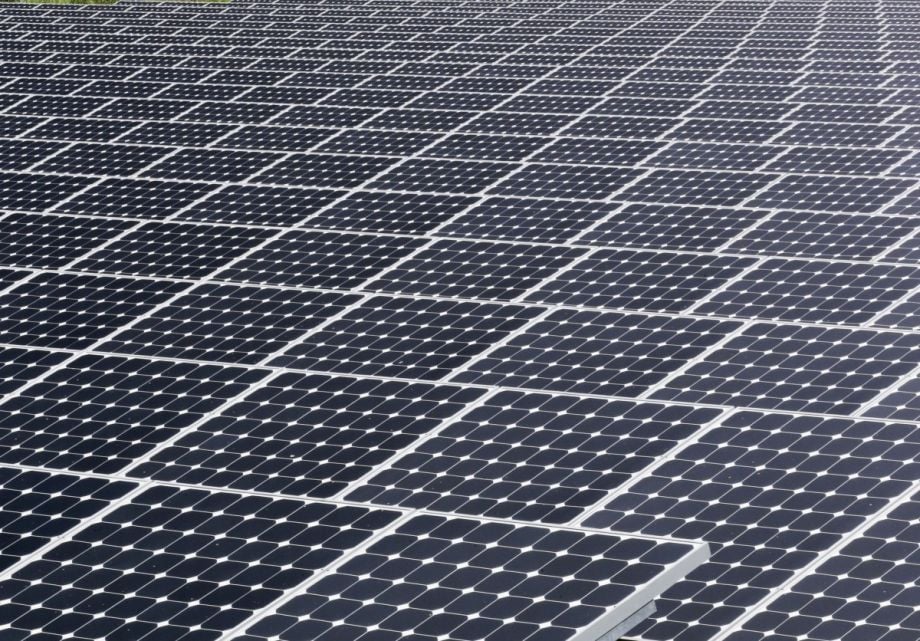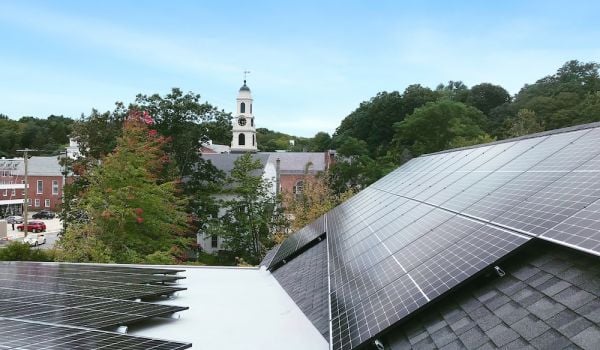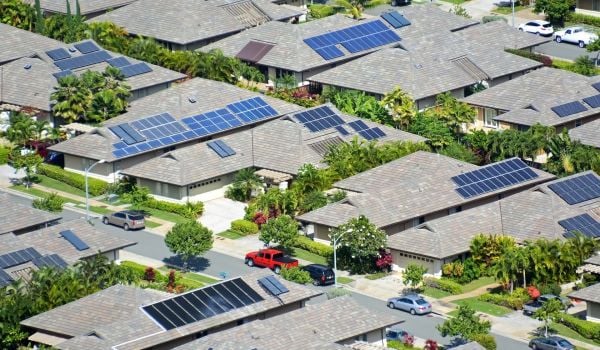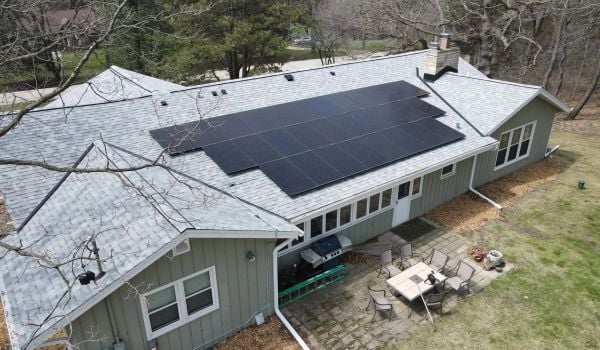Wisconsin is usually associated with cheese (or beer) not sunshine. Yet the southwestern part of the state has been targeted for the largest solar energy installation in the Midwest.
The Badger Hollow Solar Farm is slated to contain as many as 1.2 million solar panels over a 3500-acre expanse. The project is being developed by Invenergy, a private company focused on developing renewable energy sources. The vast area required for the solar farm means locating it in a rural area makes the most sense. Yet much of the workforce needed to build and then maintain the farm will likely have to come from nearby urban communities.
That is where Wisconsin Regional Training Partnership (WRTP)/BIG STEP and the International Brotherhood of Electrical Workers (IBEW) are stepping up to discuss strategies with Invenergy. BIG STEP stands for “Building Industry Group – Skilled Trades for Employment Program.” If it works, workers could parlay jobs related to the construction of the solar farm into new, higher-paying careers in construction or electrical work. Cities like Washington, D.C., are already making attempts to use sustainable energy jobs to do just that.
WRTP/BIG STEP is a Milwaukee-based non-profit organization dedicated to connecting people to family-sustaining jobs, according to its website: “WRTP/BIG STEP helps under-employed, under-served, and under-represented individuals succeed in well-paying careers while exceeding industry’s workforce needs.”
The organization currently serves roughly 3,000 people each year. It is the largest workforce development organization in the Milwaukee area. In 2015, minorities accounted for 80 percent of WRTP/BIG STEP’s job placements. In that year, the organization placed 621 people into jobs. On average, those individuals were earning less than $10 per hour prior to WRTP/BIG STEP’s training and job placement assistance. The average wage after going through WRTP/BIG STEP was $18.59.
“What we’re really hoping is to see this as a transitional employment opportunity,” says Mark Kessenich, President and CEO of the WRTP. “They get the job and we can continue to tutor them for an apprenticeship opportunity or other careers within the electrical trades. Or, if they’re interested in the installation work and not the electrical trade, maybe they want to go into manufacturing work with higher-skilled fabrication.”
Setting up the Badger Hollow solar panel fields will demand approximately 200 workers, he said. Those entry-level jobs will pay roughly $16/hour, comparable to market rates, Kessenich says.
John Bzdawka handles business development in the Midwest for the IBEW. He cautions that the contract hadn’t been awarded yet, but says the union would do what it could to win it.
Bzdawka explains that while transportation could be an issue for workers community from surrounding urban areas, such as Madison, the IBEW always prioritizes local labor first.
“We’ve reached out to the community colleges — Madison Technical College, Southwest Technical College, UW Platteville,” Bzdawka says. “And we also talked to the high schools and Midwestern Renewable Energy Associates may have some members in the area who are interested in doing solar work.”
“Maybe we’ll have a bus pick people up at the community colleges and drive them out to the site,” he says, acknowledging that the project is still some six months away from beginning, so many of the details are still being worked out.
Kessenich notes that WRTP “tries to use employment to [level] the playing field” in terms of racial disparities. A 2017 report from the Center on Wisconsin Strategy (COWS) found that the state is one of the three worst in the country for economic disparities between black and white households.
Due to the large number of entry-level positions, Bzdawka sees the Badger Hollow project as a unique opportunity to provide an entry point for a people interested in construction trades or alternative energy. One of the upsides he sees to the project is that in a region where farmers have been hard hit by falling commodity prices, renting land to the solar farm offers a way to ensure not only a regular income but also that the land can stay in the family.
“I’ve been to a lot of different public meetings and there’s always huge opposition whenever ‘eminent domain’ is said, people always cringe. People come with pitchforks and torches,” Bzdawka said. “You don’t really see that at solar meetings.”
The Badger Hollow project will have the capacity to produce 300 megawatts of power, which would make it one of the biggest solar farms in the country not located in California or the southwest. Madison Gas & Electric and Wisconsin Public Service, which is based in Green Bay, will both purchase power from Badger Hollow.

Zoe Sullivan is a multimedia journalist and visual artist with experience on the U.S. Gulf Coast, Argentina, Brazil, and Kenya. Her radio work has appeared on outlets such as BBC, Marketplace, Radio France International, Free Speech Radio News and DW. Her writing has appeared on outlets such as The Guardian, Al Jazeera America and The Crisis.
Follow Zoe .(JavaScript must be enabled to view this email address)
















